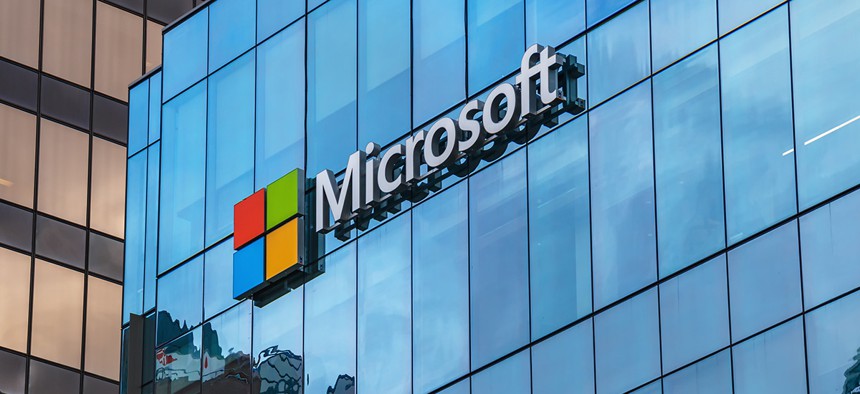Microsoft Outlines Cyber Geneva Convention Proposal

Volodymyr Kyrylyuk/Shutterstock.com
The company is also promoting an international nonpolitical body for cyber attribution.
Microsoft, which has long been among the top corporate boosters for international cooperation in cyberspace, published a trio of documents Thursday supporting a “Digital Geneva Convention.”
The publications are a list of binding rules for nations and tech companies to follow in cyberspace, plus the outline for an international organization devoted to attributing malicious cyberattacks.
They follow a speech at the RSA cybersecurity conference in San Francisco in February during which Microsoft President and Chief Legal Officer Brad Smith first advocated for the international cyber agreement.
Microsoft’s call goes much further than the U.S. and other national governments, which have shied away from new binding international agreements in cyberspace.
In place of new binding rules, the U.S. and other governments have affirmed that existing international laws, mostly focused on war and human rights, apply online just as they do on land or at sea and have endorsed voluntary norms to govern cyber-specific concerns.
The G7 has endorsed a handful of such norms, such as nations should not attack each other’s cyber emergency responders, and urged other nations to abide by them last week.
Voluntary norms don’t go far enough, Smith wrote in a blog post, saying, “we need to push ourselves further and set our sights higher to pursue a legally binding framework that would codify rules for governments and thus help prevent extraordinary damage.”
That framework, however, “should not be used by governments to introduce new limits on content or create exceptions from the protections guaranteed by fundamental human rights,” Smith said.
That question of content limits has been a sticking point in many international cyberspace negotiations. Russia, China and numerous other nations typically treat information security as including a government’s right to restrict content it deems harmful, such as pornography or, in some cases, content promoting dissident groups or alternative lifestyles, while the U.S. and other western nations treat the term more narrowly to mean attacks on the proper functioning of digital technology and the authenticity of its content.
Concerns about U.S. foreign surveillance programs exposed by National Security Agency leaker Edward Snowden have also bedeviled international cybersecurity negotiations.
Microsoft’s proposed agreement would bar nations from launching cyberattacks that could damage the global economy or affect citizens’ safety and security such as attacking hospitals or electric utilities.
It would also bar hacks against journalists and bar nations from inserting backdoors into encryption systems, among other commitments.
The agreement for tech companies would bar those companies from helping states develop offensive cyber weapons and commit them to cooperating to stop or mitigate cyberattacks and to sharing information about software vulnerabilities hackers could exploit.
The proposed cyber attribution organization would be composed of nonpolitical cyber forensics experts, Microsoft said, but the company did not suggest a specific process for membership.
Attribution has been a major point of tension when one nation accuses another of launching a cyberattack. That’s partly because intelligence officials in the U.S. and elsewhere are unwilling to share all the information that led to their attribution decision out of concerns about revealing intelligence sources and methods.
Russia, for example, flatly denied U.S. intelligence agencies’ conclusion that hackers were responsible for data breaches at Democratic political organizations that upended the 2016 U.S. presidential campaign.
Microsoft previously published a list of proposed cyberspace norms for both nations and tech companies. The company also supports The Global Commission on the Stability of Cyberspace, a group of private sector and former government officials focused on ratcheting down international cyber conflict.
NEXT STORY: DHS wants help bringing new tech to market






